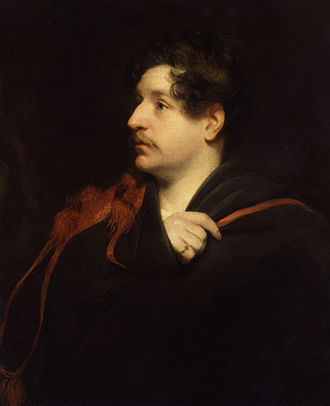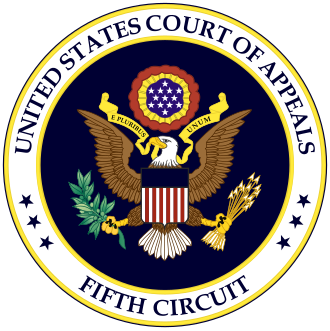Discover Your Roots
SIGN UPDiscover Your Roots
SIGN UPDixon is a male name of English origin, meaning "Son Of Richard." This name is rooted in the English language and holds a strong connection to familial heritage. It is often used as a surname and is associated with various places, including Dixon, California, Dixon, Illinois, Dixon, New Orleans, and Dixon County, Nebraska. Additionally, Dixon has been linked to notable individuals such as Dixon (DJ), a German house and techno DJ, and Dixon, a drummer in an early lineup of Siouxsie and the Banshees. The name Dixon also has ties to the USS Dixon, a U.S. Navy submarine tender. Overall, Dixon carries a rich history and is deeply embedded in English culture, symbolizing lineage and familial ties.

Dixon of Dock Green was a beloved BBC police procedural television series that aired from 1955 to 1976. The show focused on the daily life at a fictional London police station, highlighting the successful control of petty crime through common sense and human understanding. The central character, Police Constable George Dixon, portrayed by Jack Warner in all 432 episodes, embodied a typical "bobby" familiar with the area he patrolled and its residents. The character of Dixon was based on an old-style British "bobby," and the series contrasted with later programmes by realistically reflecting a more aggressive policing culture. Despite being a drama, the series was produced by the BBC's light entertainment department and retained a faithful following throughout its run. The show's early episodes often highlighted the family-like nature of life in the station and Dixon's actual family life at home. The series was known for focusing on the role of the police in dealing with low-level, community-based crimes. Dixon of Dock Green was a significant and enduring part of British television history, drawing a devoted audience and being voted the second-most popular programme on British television in 1961.

Dixon, also spelled as Dickson, is a surname with a rich historical background, originating from Thomas de Keith's ennoblement in 1307. The name derives from Richard Keith, son of Hervey de Keith, Earl Marischal of Scotland, and Margaret, daughter of the 3rd Lord of Douglas. Clan Dickson is considered a sept of Clan Keith, with Richard Keith's son, Thomas, adopting the surname "Dickson." Thomas Dixon (1247–1307) was associated with William Wallace and met his demise defending Douglas Castle. The Dixon coat of arms reflects the family's descent from the noble Scottish clans of Keith and Douglas. The family mottos include "Fortune favours the brave" and "What I have said I have said." The surname first appears in the Subsidy Rolls of Cumberland in 1332, seemingly unrelated to the Earl Marshal of Scotland. Notable individuals bearing the Dixon name span various fields, including activism, politics, sports, arts, and entertainment. From American activist Aaron Dixon to English mathematician Alfred Cardew Dixon and American jazz musician Bill Dixon, the Dixon name has left a notable mark across diverse domains.This summary introduces the historical significance of the Dixon surname and its association with noble Scottish clans, as well as highlighting the diverse achievements of individuals bearing the Dixon name across various fields.

Dixon Lanier Merritt (July 9, 1879–January 9, 1972) was an American poet, humorist, and newspaper editor known for his witty limericks and contributions to the American Press Humorists Association. Born as Dixon Lanier Abernathy, he later changed his surname to Merritt. Merritt was married twice and had a significant impact on various fields, serving as Tennessee State Director of Public Safety, teaching at Cumberland University, editing newspapers, and contributing to scholarly works on ornithology. He also collaborated on "A History of Tennessee and Tennesseans" and served in the U.S. federal government during both World Wars. Merritt's humor and love for nature were evident in his work, and he was a founding member of the Tennessee Ornithological Society. His legacy is honored with a nature center at the Tennessee Cedars of Lebanon State Park named after him. Merritt's passion for nature and his contributions to humor and literature have left a lasting impression on many.

Dixon Denham (1 January 1786 – 9 June 1828) was an English soldier, explorer of West Central Africa, and Governor of Sierra Leone. Born in London, Denham pursued a military career, serving in various campaigns and forming close ties with the Duke of Wellington. His adventurous spirit led him to the Bornu Mission, where he joined a government expedition to establish trade links in West Africa. Despite facing challenges and setbacks, including conflicts with his compatriots and local authorities, Denham persevered in his mission. However, his leadership and diplomacy skills were called into question, and his conduct caused friction within the expedition. Denham's journey was marked by controversy and strained relations, ultimately impacting the success of the mission. His endeavors in West Africa left a complex legacy, showcasing his determination and assertiveness, while also highlighting the difficulties he encountered in navigating diplomatic and interpersonal challenges. Denham's contributions to exploration and governance in Africa remain a subject of historical interest and debate.

Dixon v. Alabama, 294 F.2d 150 (5th Cir. 1961), marked a pivotal moment in U.S. federal court history, signaling the end of the doctrine that allowed colleges and universities to act in loco parentis in disciplining or expelling their students. The case stemmed from the expulsion of six students, including St. John Dixon, from Alabama State College, a segregated black college, for their presumed involvement in Civil Rights Movement demonstrations, without a fair hearing. The Fifth Circuit ruled that public colleges could not expel students without providing at least minimal due process. Notable figures such as Thurgood Marshall, Fred Gray, Derrick Bell, and Jack Greenberg were among the counsels for the appellants. The dissenting opinion came from Benjamin Franklin Cameron. This landmark case is often referred to as "the leading case on due process for students in public higher education." The decision's legacy has had a lasting impact and continues to be a significant reference point in discussions about student rights and due process in educational institutions.
All images displayed on this page are sourced from Wikipedia or Wikimedia Commons.We use these images under their respective Creative Commons or public domain licenses. Wherever applicable, author attributions and license information are provided. If you believe an image is used incorrectly or outside its license terms, please contact us so that we can review and correct the issue.